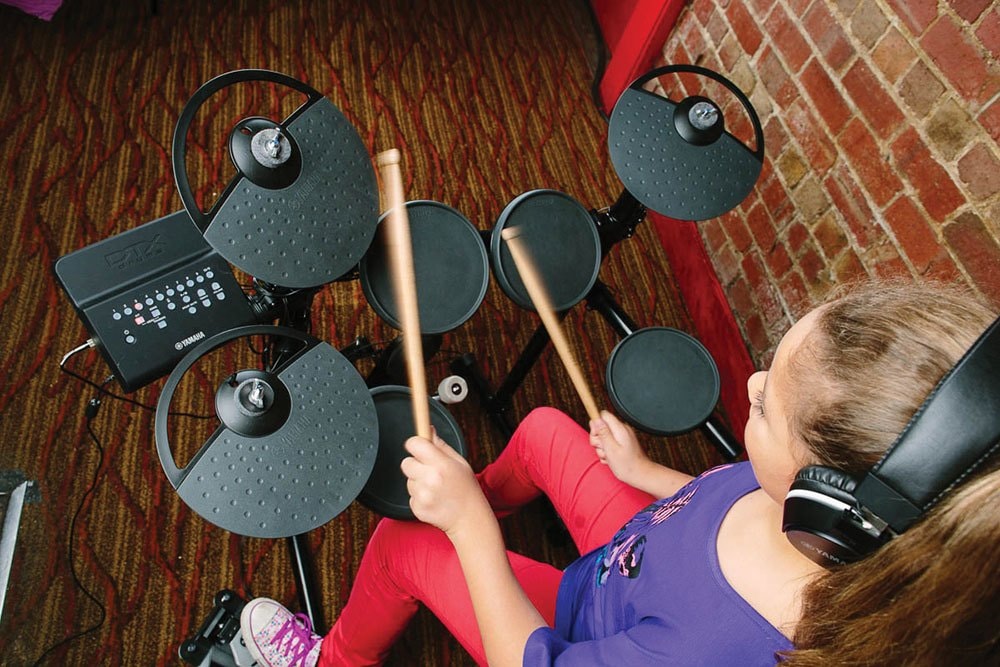Budgeting for a Successful Music Program

Regina Mendes-Joachim
Director of Music (NL) Werribee Secondary College
So, you have arrived as the new music teacher at your school, and you have a minimal budget to work with. Most of us working in music education are not trained to work with budgets. With a little patience, however, you can learn not only how to work within a given budget, but also – through careful planning – to expand your department’s funding.
Before we start talking about budgets, you need to ensure that you make the best use of available finances at your school to ensure that:
- Music is part of your mainstream school life.
- Music is audible around the school. (Perhaps you have insufficient facilities for students to practise? Then practise out in the yard!)
- Everyone sings. (Your choice of music has students excited and wanting to continue singing in the yard.)
- A fun, vibrant music curriculum is available to all.
- All music staff (including instrumental staff) are considered a valuable part of the Music Department and are enthusiastic advocates for music.
- You create a ‘Music Hub’, to which students flock during their free time.
You have now created a sense of excitement for music. What now?
Plan! Plan! Plan!
Dream big! Have a long-term vision (e.g. “At the end of 10 years, or 20 years, I would like to have … happen within this department”). In order to achieve this, start by putting into place a 1-year, 2-year or 5-year plan. I have done this at both the schools where I have taught, and it works!
The question now is: how do you work with the allocated budget? The answer is: you don’t! You start thinking of ways to supplement it.
“But how?” you may ask. You hate the thought of fundraising, but more to the point, you don’t have enough time to do so.
Start small.
Step 1
Organise concerts and charge a small entry fee (use facilities that you don’t have to pay for). Make sure the money raised goes into Music Department funds. Have large groups give the best-quality performance they can for their level of competence. There you go: now you’ve won a captive parent audience who are always excited to come along to hear/see their child perform and support the school!
Wait a minute, did we say excited parents …? Surely this is a rare find! No indeed. These are people who are involved in your students’ success, who believe in the importance of music education, and who want to be involved in the social environment that is music. Nurture these people, gather them together, and create a music support group whose members will not only raise funds, but also speak positively about you and your program to anyone who will care to listen, painting a positive picture of your school.
And don’t forget to encourage School Administration Leaders to attend concerts and support you. (This is a very important step, which we’ll talk about later). Use the buzz you’ve generated and the assistance of your support group to entice the leadership team to come to the concerts because they want to, not because they feel duty-bound to do so.
Formalise your budget
You will need to make sure you formalise your budget. Keep a simple income/expenses record. Here are some examples of what to include:
- income: school-allocated funds, fundraising through your support group, admission to events, student fees
- expenses: piano-tuning, instrument repairs/maintenance, new instrument purchases, music library, consumables (reeds, strings, etc.), technology, printing, guest artists/ speakers.
So your budget could look like this:
Income
| School-allocated funds | $ |
| Fundraising | $ |
| Admission to events | $ |
| Student fees | $ |
| Total income | $ |
Expenses
| Piano-tuning | $ |
| Instrument repairs/maintenance | $ |
| New instrument purchases | $ |
| Music library | $ |
| Consumables (reeds, strings, etc.) | $ |
| Technology | $ |
| Printing | $ |
| Guest artists/speakers | $ |
| Total expenses | $ |
| TOTAL INCOME LESS TOTAL EXPENSES |
$ |
Now it’s time to put Step 2 into place. Remember earlier we talked about encouraging support from your School Administration Leaders? Through them, put in a request for additional funding.
Step 2
Send the leadership team your income/expenses record for the current year, together with a cover letter justifying your request for additional funding for the following year, and a budget summary.
Your budget summary is similar to the current year’s income/expenses record, and gives details of your request for additional funds. Keep it broad. You do not need to provide itemised costs, as you have done for your income/expenses record. The idea is to give the leadership team an idea of the magic you have worked with your current budget, and your needs for the following year.
You have already encouraged the leadership team to support you by attending concerts and observing the valuable work you are doing with the students. Now you are also proving to them that you are good at managing money, and that you have clear, set goals for any additional funds they choose to support you with.

Step 3
The fun part of creating additional income now begins! Here are some ideas:
- Partner with other departments at your school (e.g. Drama, Visual Arts, Food Tech, Tech) to run joint events and share the income.
- Run sponsored activities such as Practise-a-thons (which can take place at home, as well as at school) and Play-a-thons. For a Play-a-thon, set aside 3–4 hours at school during which there will be continuous music happening – students ‘tag team’ with each other as soloists and in ensembles).
- Use your support group. Ask them to encourage local businesses (e.g. their workplaces) to sponsor your concert/music event. Many are happy to do this in return for advertising. (Make sure you contact appropriate businesses.)
- Create opportunities for the school ensembles to perform both within and outside the wider school community. (This could potentially lead to paid gigs.)
Also, don’t forget to look at ways of saving money; for example, through networking with other schools in your area – there will be some that have excess instruments that they may be willing to let you borrow, or they may be open to creating a shared library and/or shared other resources.
Good luck with your budgeting and getting your music program on the road!
| Advocate Don’t forget to sell the importance of music making in students’ lives when making a case to increase your budget. For example: |
|
| Psychological effects | Physical effects |
| Improve:
• confidence • self-esteem • co-operation • resilience • perseverance • collaboration • empathy • tolerance • reasoning capacity • problem-solving ability • memory • social skills • team-building |
Relieve: • chronic pain Lower: • blood pressure • stress Relieve: • stress • mood Relieve: • relaxation |

Regina Mendes-Joachim is an experienced educator working in the Government school system in Victoria. Her 35+ years experience covers schools in country as well as regional Victoria where she has set up successful programmes. She has always worked on the philosophy that live Music making is important for all students.
